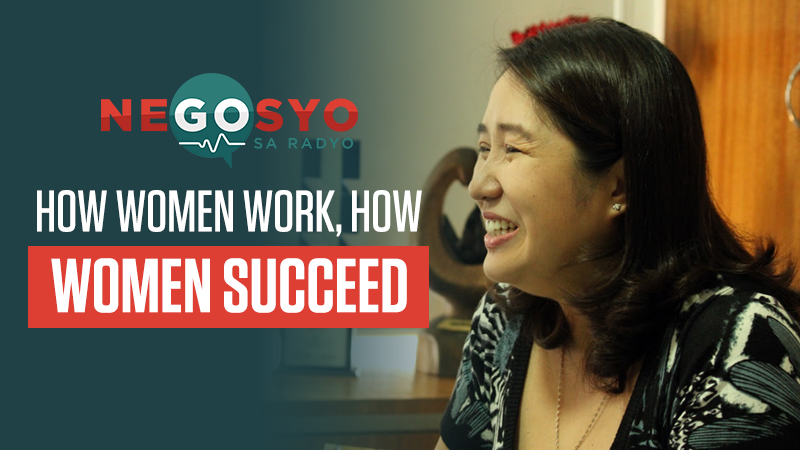
by rossanahead | Mar 30, 2017 | career, Education
Online hiring in February was at its highest level since November 2014 with the continued growth of the information technology (IT) and business process outsourcing (BPO) sector, according to online hiring site Monster.com.
Read more at BusinessWorld Online.

by rossanahead | Mar 30, 2017 | Business Tips, Education, family, health and wellness
 In the wake of the celebration of World Consumer Rights Day on March 15, the Department of Trade and Industry (DTI) once again reminds consumers of the importance of asserting and fulfilling their rights to overcome unfair trade practices and avoid exploitation.
In the wake of the celebration of World Consumer Rights Day on March 15, the Department of Trade and Industry (DTI) once again reminds consumers of the importance of asserting and fulfilling their rights to overcome unfair trade practices and avoid exploitation.
“Everyone is a consumer and, as such, each of you would want to be treated safely, fairly, and honestly in every transaction you make,” says DTI in a statement issued March 28.
“To guide you, here are eight (8) basic consumer rights you are entitled to. Knowing them empowers and protects you against market abuses and social injustices.”
1. The right to basic needs. This is your right to have access to basic and essential goods and services, such as adequate food, clothing, shelter, health care, education, public utilities, water, and sanitation. This right also reminds you to prioritize your needs over luxuries or unnecessary wants and focus on the quality of goods and services, rather than the brand, high price, and quantity.
2. The right to safety. This is your right to be protected against the marketing of goods or provision of services that are hazardous to your health and life. You can read first the label of a certain product to see its precautions, warning signs, expiration date, and PS (Philippine Standard) or ICC (Import Commodity Clearance) marks. If needed, you can also ask for a professional consultant to learn more about a product.
3. The right to information. This is your right to be given the facts you need to make informed choices and be protected against dishonest or misleading advertising and labelling. Before purchasing a product, you can read its label carefully to know its use, content, number of pieces, proper handling, and manufacturer. Also, before signing waivers, warranties, or service contracts, it helps that you understand all the provisions written in them.
4. The right to choose. This is your right to select from a range of goods and services at competitive prices with an assurance of satisfactory quality. You can always canvass for prices of similar or wide array of goods and services offered in the market before purchasing.
5. The right to representation. This is your right to express your interests as a consumer in the making and execution of government policies. You can attend public hearings or meetings regarding consumer issues to be aware of how consumer laws and regulations are being implemented in your area.
6. The right to redress. This is your right to be compensated for misrepresentation, shoddy goods, or unsatisfactory services. In case you have bought a defective product, you can return to the store, look for Consumer Welfare Desk, and request a replacement, refund, or repair of the product.
7. The right to consumer education. This is your right to acquire the knowledge and skills necessary to be an informed consumer. You can read newspapers, magazines, and other materials that may educate you on how to get the best value for your money. You can also participate in seminars, conferences, and fora regarding consumer products, new concepts, and developments, which are conducted by government agencies, consumer groups, and business or industry sector.
8. The right to a healthy environment. This is your right to live and work in an environment that is neither threatening nor dangerous but rather permits a life of dignity and well-being. The government then must play its role in enforcing environmental and sanitation laws on factories, stores, and shops; while you need to reduce, reuse, and recycle the waste from your consumption.
For more information on consumer rights, send an e-mail to cpg@dti.gov.ph. To report a complaint on products and services, call DTI Direct 751-3330 or send a text message to (0917) 834-3330.
Photo: Wayne S. Grazio,Featured Photo from Philippine Retailers Association

by rossanahead | Mar 24, 2017 | career, Education
According to the “2017 JobStreet.com Fresh Graduates Report,” three fields have overtaken information technology as the most generous employer for fresh graduates–law, healthcare, and journalism.
Photo by Tingey Injury Law Firm on Unsplash

by rossanahead | Mar 6, 2017 | business, career, Education, gender equality
Written by Susan Agustin, Go Negosyo
To kick of National Women’s Month, Go Negosyo sa Radyo aired a femme-powered episode on March 1 with two phenomenal women entrepreneurs as guests. Hosts Sen. Bam Aquino & DJ Cheska San Diego-Bobadilla were joined by Emma Imperial of Imperial Homes and Rossana Llenado of AHEAD Tutorial and Review Center. Both have been previously awarded by Go Negosyo (Imperial in 2015 and Llenado in 2016) for being women entrepreneurs worth emulating.
On March 30, Go Negosyo will award another batch of women in the Inspiring Filipina Entrepreneur Awards 2017 which will be held in the prestigious Malacañan Palace. Much like Imperial and Llenado, the women who will be given recognition are those who have sparked significant progress and inspired change in the entrepreneurial community.
Sen. Bam and DJ Cheska began the episode by setting the tone for the listeners. At the end of the hour, they hoped to have uplifted the listeners and opened their eyes to the nuances of women entrepreneurs’ experiences.

Imperial Homes Group of Companies
Emma Imperial was the first to share her story. She is a well-decorated and respected CEO in the realty industry wherein her male counterparts mostly dominate. Imperial shared that at the onset of her career, she had to prove herself as someone worth paying attention to. “Big developers are usually male and the engineers that work for me are mostly male as well.” Despite these odds, Imperial has managed to lead her company to becoming well-recognized globally. With recognitions under her name like Biz News Asia 2016 Entrepreneurship Awardee and Filipina Women Network’s 100 Most Influential Filipinas 2015, it is an understatement to say that Imperial is at the top of her game.
Likewise, her company is equally laudable and has even received international attention. Imperial Homes Group of Companies was awarded by the CEO Asia Awards 2015 as the ADEC Innovation Green Company of the Year, certified by IFC-World Bank Excellence in Design for Greater Efficiencies (EDGE) for Green Building, and recognized by the Financial Times in 2016 as a nominee for the Transformational Business Awards. “You don’t have to be big to be counted in the global community. It’s about innovation and how you believe you’ll help your country; it’s not about the size but the idea,” Imperial shared.
Her big idea manifested when her company decided to construct solar-powered small houses. It was for them, a way to address the backlog of housing in the country as they were low-cost and efficient. In a country where solar power is somehow relegated to more expensive projects, Imperial homes saw the potential for them to be ideal for the provinces where brownouts were frequent. The switch to solar meant that these areas would never have to suffer from power cuts and solar at scale would actually be energy and cost efficient. It was a revolutionary idea: solar power for low-income families. After her company started this project, many took notice. “Ginawa tayong poster child ng World Bank,” Imperial proudly says.
With her story, Imperial wishes to impart to other women entrepreneurs that working in a male-dominated business doesn’t have to be a struggle. Although you have to prove yourself worthy at first, she shares that strict implementation and being consistent with your policies ultimately makes others listen. She’s proud that her organization is now seeing a lot of interest from the youth because the youth she says, are intrigued by innovation (like Imperial Homes solar-powered low-cost houses)
Not to take away from the men in her industry, but Imperial shares that she believes women have more heart than men. “ I had more chances to make my business high-end, but I chose to cater to the low-end group. I can also honestly stop doing business now and I’d be okay but I can’t stop because of my employees.”
She also shares that it’s important for women in business to have camaraderie. She shares that when she was starting in her industry, it was hard to be part of bigger projects because the men would already have a so-called “boys club” and she would be left out. Today, she happily shares that women entrepreneurs have already set-up similar groups to support each other and they often meet about projects related to nation-building.

AHEAD Tutorial and Review Center
Rosanna Llenado was the second guest who shared her story and insights on what it means to be a successful woman entrepreneur. She was named as one of the 100 Most Amazing Filipinas by Summit Media in 2012 and received numerous awards from the Philippine Marketing Association, Philippine Chamber of Commerce and Industry, and Entrepreneur Magazine. Her business, AHEAD is one of the most venerated tutorial and learning centers in the country. As one of the first tutorial centers to offer college entrance exams review programs, Llenado eventually expanded their services to offer a wide range of programs to complement students’ learning.
Recently, they’ve put a center that focuses on teaching Singapore Math— a method that she believes is more functional and practical which eventually makes student’s more proficient at the often dreaded subject. They’re also offering courses on speed reading and mind-mapping which are valuable skills for any student tackling difficult and lengthy reading materials. From a small business started at her home, AHEAD has now risen as the go-to tutorial center in the metro because of its quality and comprehensive programs that position students for excellence.
When Llenado was asked about her opinion on Filipina entrepreneurs, she says that a lot of Filipinas are still scared to enter into business. But what most Filipinas don’t know, she said, is that we’re relatively lucky compared to women from other countries. She discovered this fact when she conducted a research on women entrepreneurs across the world. She found out that the Philippines was ranked #5 on the list of women-friendly countries for business. She further shares that there are some countries wherein women aren’t allowed to have properties or businesses registered to their name and would have to put them under their father’s or husband’s.
She recognizes that there are a lot more women entrepreneurs now compared to when she first started AHEAD. But she says that despite this increase, women will still encounter struggle or discrimination, especially when they’re just starting out. “I also had an experience when I struggled with doing business as a woman; I was invited to do business with these group of guys.
I noticed one of the men was trying to pulling one over us, and I called him out. They eventually met without me and kicked me out. True enough, that man I called out did deceive all of them.”
Despite the welcome positive change of more women entering business, Llenado wishes however, that more women in our country would hold positions in different boards. She noticed that most board of directors and trustees are still predominantly male. “Women can lead. We’ve had two women presidents! And in the senate and company presidents, ang dami rin babae.” So, why should the boards be different, right?
Llenado and Imperial’s stories are just two amongst a plethora of inspiring success stories of FIlipina entrepreneurs. They are a testament to the woman’s ability to lead and succeed. So, if you’re a woman, currently aspiring to turn that business dream into reality, but afraid to start, here are choice words from our two guests yesterday:
“Do things for the greater good of the country. Imperial Homes never really intended to become a social enterprise, but because we had the heart to think of the communities that other competitors weren’t thinking of, we were able to distinguish ourselves from them. We profited of course— but that naturally follows when you do good work” – Emma Imperial
“If you don’t know where to start, ask yourself— whats the right business for me? ano ang kailangan ng kababayan ko? If you can answer these two and somehow the answer is one thing then that’s a good place to start.” – Rosanna Llenado

by rossanahead | Feb 12, 2017 | career, Education, Existing Business
By Rowena Diocton
There’s no denying it. Women have grown way beyond their traditional roles of housekeeping and child rearing. According to the April 2016 Philippine Labor Force Survey, nearly 17 million Filipino women are part of the country’s total labor force, nurturing careers in various industries, from agriculture and manufacturing to education and finance and insurance. These days, there really is nothing that Filipinas can’t do.
Still, there are major bumps on the road to career growth. Filipino career women remain at risk of the gender pay gap and stereotypes that come with being a driven, goal-oriented woman. As such, it pays to know where the Filipina careerist stands in the big picture. Here, we take a look at the facts surrounding Filipina workers and the challenges they continue to face.
1. Majority of Filipina workers are between 25 and 34.
The labor force survey mentioned earlier reveals that roughly one in 10 workers in the country is a woman between the ages of 25 and 34. Women in this age range have likely worked for at least four years after finishing a four-year college course.
2. Filipina workers dominate in several key industries.
According to 2014 data provided by JobStreet, an online job search site in the Philippines, Filipinas dominate in industries involved in the following:
- travel/tourism (81%)
- grooming/beauty/fitness (76%)
- gems/jewelry (75%)
- healthcare/medical field (72%)
- biotechnology/pharmaceuticals (71%)
- textiles/garments (70%)
- journalism, banking/financial (69%)
- agriculture (68%)
- wood/fiber/paper production (67%)
- property/real estate, accounting (65%)
3. More and more Pinays with high educational attainment are entering the workforce, contributing to positive economic growth.
In a 2015 survey of women workers in the Asia Pacific, the Asian Development Bank found that the Philippines is the only country in the region to close the gender gap in both education and health survival, owing to the country’s high female literacy and enrollment rate, survival rate, and life expectancy. Many Filipinas with higher education are helping bridge the employment gap between men and women, providing more opportunities for other women to get a higher pay and better positions.
4. More Filipino women are becoming major players in business and legislation.
Strong-willed Filipinas are increasingly exhibiting their capacity to take part in making big decisions that impact the business and legislative sectors. Data from the International Labor Organization showed that more than half (55%) of legislators, senior officials, and managers in the Philippines in 2008 were women. Women are typically underrepresented in decision-making processes, be it in state or business matters. As such, having more women get to top positions means greater opportunity for female representation in issues that affect them.
5. Despite their educational attainment, Filipino women are less likely to join the workforce than Filipino men.
Though they may be highly educated, Filipinas are less likely to join the labor force than their male peers, according to the latest MasterCard Index of Women’s Advancement. Often, socio-cultural factors deter them from doing so. The country’s history may have a hand in this, since Filipina workers have been predisposed to expect discrimination in the workplace.
These facts paint a picture of Filipino women as a resilient group that continue to find ways to prove their worth. There may be hurdles, but the rising number of women in the local workforce and in the top echelons of corporations and institutions shows that they are not going to let anything stop them from reaching their full potentials.
Photo: mUAr cHEe

by rossanahead | Feb 2, 2017 | Business Tips, career, Education
By Ruth Manimtim-Floresca
You’ve probably heard the story of how Thomas Edison failed more than a thousand times before he finally produced a light bulb that works. Instead of looking at failures as mistakes, Edison acknowledged them as a successful discovery of 1,000 ways to not make a light bulb.
Throughout history, Edison and many other great men and women have proven that we can always “fail forward.” Their stories teach us that no one can be a total loser as long as one keeps trying. Here are uplifting lessons to keep in mind when setbacks threaten to dampen your spirit.
- Let failure refine—not define—you. For people with a teachable heart, committing and acknowledging mistakes enables them to turn pride into humility that, in turn, develops their character.
- Never associate setbacks with complete failure. Although not succeeding is surely disheartening, wallowing in self-pity for long will not help you move forward. Get up and try again.
- Consider failure as a stepping stone. Everyone is bound to fail at some point, but those who persist despite stumbling are the ones that usually succeed. Read up on famous people like Walt Disney, Isaac Newton, Charlie Chaplin, and J.K. Rowling to find the inspiration you need to keep going.
- Treat failure as a learning experience. Before making another attempt, evaluate your past actions, reflecting on what went right and what did not. Take note of what to avoid doing or what to do differently the next time around.
- Allow failure to help you pinpoint priorities and values. When you fail, you are forced to inventory what truly matters to you and to make the needed adjustments. One mistake people may make is focusing on the wrong things. If you value the right things, it often becomes easier to succeed because you have the passion and determination to chase after your dream.
- Consider if you need to seek help. Being self-sufficient may not always be the right approach. It won’t hurt to ask for and accept assistance from trusted partners. As the saying goes, “Two heads are better than one,” and that often applies to many situations.
- Credit failure for improving your financial perspective. Major debacles will force you to look at money-related things differently. Losing money through bad decisions will remind you to treat your finances with more care. As your decision-making skills improve, you’ll be creating a stronger foundation for future wealth and success.
- Thank failure for filtering out superficial friendships. Unfortunately, there are people who stick around only if they can get something from you and who disappear once you fall. While betrayal hurts, be comforted in the knowledge that true friends will not care about how much money you have or how you can continue to be of use to them. Know that real friends stay and motivate you to get back on your feet.
Ultimately, failure reminds us to look to a higher power for comfort and guidance. Personally, I rest my faith in God, knowing that everything happens for a reason and that failure teaches me lessons I wouldn’t otherwise learn if things always went smoothly.
Photo: Leonardo Shinagawa



 In the wake of the celebration of World Consumer Rights Day on March 15, the Department of Trade and Industry (DTI) once again reminds consumers of the importance of asserting and fulfilling their rights to overcome unfair trade practices and avoid exploitation.
In the wake of the celebration of World Consumer Rights Day on March 15, the Department of Trade and Industry (DTI) once again reminds consumers of the importance of asserting and fulfilling their rights to overcome unfair trade practices and avoid exploitation.




